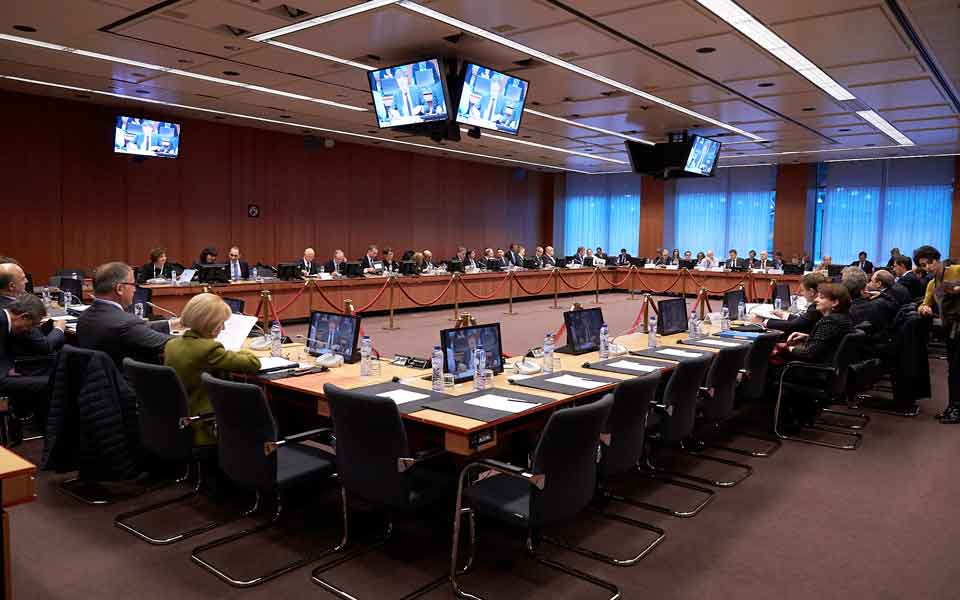No credit waiting at bailout finish line

Monday’s Eurogroup is expected to officially bring down the curtain on the third review even though it will take a few more days for some prior actions to be completed. The completion of the latest assessment by Greece’s lenders will be the trigger for a number of defining developments in the coming months.
A senior eurozone official told reporters in Brussels last week that getting the review out of the way means that discussions can begin at a technical level on debt relief, which is one of the long-awaited benefits that Greece hopes to secure as it exits the third bailout this summer.
However, with reward also comes responsibility. It is clear that Athens cannot harbor any misgivings about stepping out of the program and into an environment where the government will be free to do whatever it wants. The eurozone will not be lending to Greece after the summer but it will be taking some kind of hit through whatever debt relief package is agreed and will expect to get something for its money.
We will have to see exactly what this will be. Apart from the fiscal targets that have already been agreed, not just for the coming years but the next decades as well, there is likely to be a list of structural reforms that have not been carried out or completed over the last eight years for Athens to focus on in the post-program era. Some form of surveillance will also continue after August.
The eurozone official pointed out that Greece is a different case to Cyprus, for instance, where the monitoring after its bailout has been relatively light. Something more robust, but perhaps not as intrusive as we have seen over the course of the three programs, will likely be agreed between now and the summer.
This hybrid package, exclusive to Greece, which European decision makers have seen as a unique case since all this began almost a decade ago, will also extend to the financial form that Greece’s bailout exit will take. The continued surveillance from the institutions means that a “clean exit” in its purest form is not possible, even if Greece stops borrowing via the European Stability Mechanism by this summer.
At the same time, though, a fourth program, also in the purest sense of the term, is not on the cards. Everyone involved is too battle-scarred from what has happened over the last few years to contemplate the option of yet another bailout for Greece.
One possible halfway house would be for Athens and its lenders to agree a precautionary credit line, which would involve the eurozone setting money aside for Greece to call on should it be required after leaving the program. This was the option being discussed in 2014, when the New Democracy-led coalition at that time was aiming for an early exit from the second program.
Speculation about this option being revived was fueled by reports of a working lunch at the Bundesbank in Frankfurt, in which Bank of Greece Governor Yannis Stournaras and Greek bankers took part. It was suggested that the credit line was seen by all parties as the best solution for Greece because it would ensure that the Greek banks could continue to access cheap funding from the European Central Bank. In the absence of a program, or a continued credit-and-conditionality arrangement between Athens and its creditors, the ECB will not be able to accept Greek government bonds held by local lenders as collateral because it will have to lift the waiver currently in place for non-investment grade debt. This would force the banks to borrow via the more expensive Emergency Liquidity Assistance (ELA).
Stournaras made clear his preference for this option in the central bank’s Interim Report on Monetary Policy for 2017 published in December, sparking an angry response from the government, which accused him of overstepping his authority and interfering in the government’s policy-making business. The Bank of Greece governor has stressed since that his role is to take into consideration the country’s long-term interests, which outlast politician’s cycles in public life.
Nevertheless, the decision on this particular subject rests with the current government. And that is mainly why it seems unlikely that a precautionary credit line will be extended in the summer to act as Greece’s safety net.
The government seems solely focused on making a “clean exit,” which Prime Minister Alexis Tsipras has recently referred to as a “self-reliant” departure from the program in an apparent attempt to dampen expectations about what awaits the country in a few months.
Whatever the term used, Athens will have to create a significant cash buffer over the next few months to back up its plans. A government official told Reuters last week that Greece will probably issue a seven-year bond following the completion of the third review and that two more bonds may be issued by end of the program in August.
The coalition’s aim, according to the official, is to create a cash buffer of up to 19 billion euros, with around half coming from the institutions and the other half from the markets. This could cover Greece’s debt maturities for about 18 months following the end of the program.
There is also a reluctance about a credit line on the lenders’ side. An application from Athens for further stand-by funding would mean the Eurogroup having to agree to such a request. As things stand, there is a reluctance among eurozone member states to have discussion, which would involve the issue being debated in some national parliaments, about a precautionary package for Greece. European officials have suggested recently that such an option does not appear particularly palatable to Greece’s partners.
It is also doubtful how much of a difference the credit line would make to Greek banks and their borrowing costs as their Greek bond holdings are relatively small. Based on the data provided by the four systemic lenders in the presentations of their nine-month results last year, it appears that local lenders have pledged around 5 billion euros in Greek bonds and treasury bills with the ECB, which would no longer be eligible if the waiver is lost.
The eurozone official told journalists last week that for a precautionary credit line to be discussed, Athens has to lodge such a request. Given that the Greek coalition has made it clear that it has no such intention, there is nothing to discuss. It at least provides some clarity about what to expect this summer. There is more work to be done, though.





